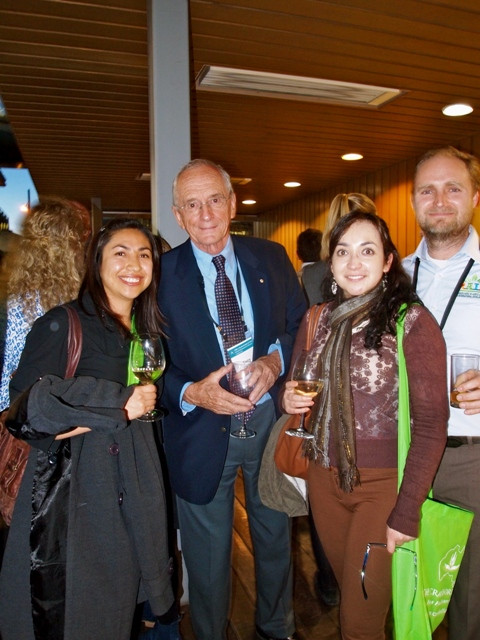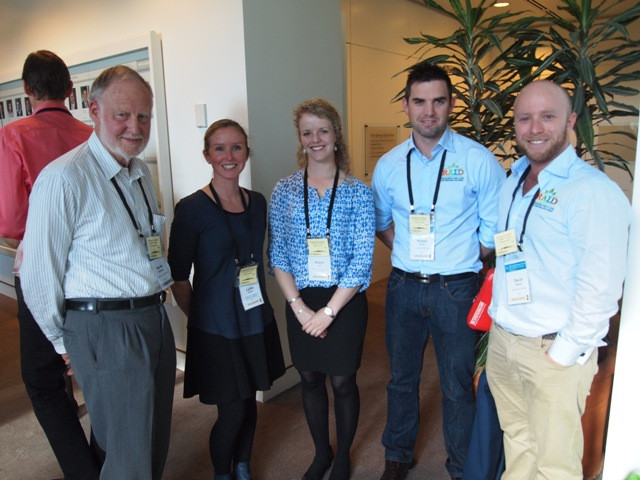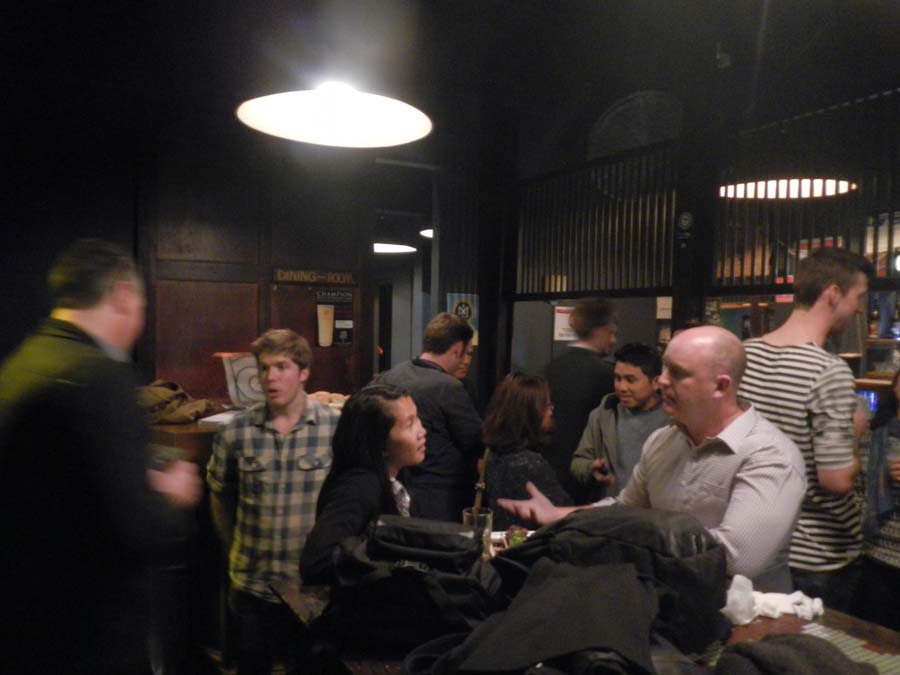Getting connected: the art of networking at conferences
By Di Mayberry, Julia Hoy, Nick Hudson, Dennis Poppi, Megan Sullivan
Conferences are an important part of being a scientist. And while catching up on the latest news in your field can be exciting, it’s the networking opportunities at these events that will help to shape your future career. Meeting new people can help you get a job, find research collaborators, solve a science problem, secure funding, publish papers and much more. Many young scientists find networking intimidating, so we’ve put together a few tips to help you get the most out of your next conference experience.
Plan ahead
Submit a paper for an oral presentation – it’s the easiest way to introduce yourself and your work to a large group of people.
If you’re travelling to get to a conference, arrange to visit local research institutes. This gives you an opportunity to meet scientists who aren’t attending the conference. Most groups love having presentations from visiting scientists (including students!), so it’s also a great opportunity to share your work.
Read the conference program and delegate list before the conference starts. Identify which sessions you want to go to and who you want to meet. It’s often helpful to ask your colleagues for recommendations on who to catch up with, especially if you’re going alone. You might even like to contact someone before the conference and arrange a meeting (but make sure you have something specific to discuss).
Pack the right clothes and dress appropriately. If it’s a conference you haven’t been to before, ask someone who has what the dress code is like.
Get some business cards printed with your name and contact details. Hand them out to people you meet, and expect to collect a similar number in return.

Who should you network with?
Everyone! Talk to lots of people – you never know who will be useful. Conferences give you a great opportunity to meet other scientists from different institutions, countries and research areas. There’s also likely to be representatives from industry, funding bodies and scientific journals.
Meeting other students and early career researchers is just as important as meeting experienced researchers. These people will be your peers and colleagues in the future.
Starting a conversation
Know what you want to say. Be able to introduce yourself and give a clear and concise explanation of your research (10-30 seconds).
Sit next to people you don’t know.
If you’re too shy to introduce yourself, ask a colleague for an introduction.
Many scientists are not extroverts or good at networking, but everyone likes being asked about their work.
Take advantage of tea breaks, functions, field trips and networking events, and always say ‘yes’ if you’re invited to join a group for dinner or drinks after the last session for the day. People are usually more relaxed and easier to talk to in less formal situations.
Don’t spend the whole conference on your phone or laptop – it makes you less approachable, and people will be much less likely to stop and start a conversation.

Good manners are always appropriate
Be a good listener. Ask open ended questions about other people’s research.
Thank people for their time and advice (even if you don’t agree with it!).
Don’t be rude or use inappropriate language.
When asking questions during a session, keep your question brief and to the point. Being overly critical of others’ work will reflect worse on you than the presenter.
Accept rejections gracefully
Networking can be like dating – you won’t hit it off with everyone you meet. But you need to put yourself out there and keep trying.
After the conference
If you told someone you’d keep in touch, make sure to follow up. When exchanging business cards or contact details it’s often helpful to make a note to yourself what you were going to contact that person about.



